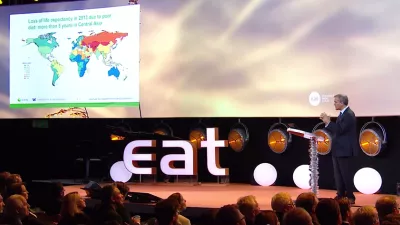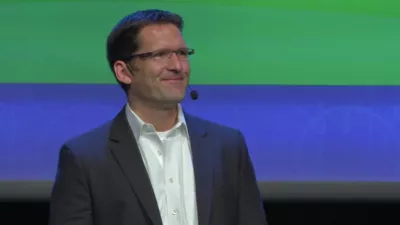Videos
Watch the latest videos from IHME, including data stories, events, seminars, and training tutorials.2016 Roux Prize Winner: Dr. John Q. Wong
A Filipino epidemiologist and professor, Dr. John Q. Wong, has been awarded $100,000 for using health data to identify the most taxing health problems in the Philippines, helping his country expand health coverage and reduce the costs involved.
The effect of conflict on Syrian life expectancy, 1990–2013
An animation to accompany the study titled, "Health in times of uncertainty in the Eastern Mediterranean region, 1990–2013: a systematic analysis for the Global Burden of Disease Study 2013."
Launch of the GATHER Guidelines - Video News Release
GBD 2015, the next update of GBD, will be fully aligned with the suggestions outlined in the Guidelines for Accurate and Transparent Health Estimates Reporting (GATHER) Statement. GATHER defines best practices for documenting studies that synthesize evidence from multiple sources to quantitatively describe past and current population health and its determinants. These practices include documenting and sharing data inputs, analyses and methods, and results. Documenting the input data on which estimates are based, and the methods by which estimates are derived, is essential for the accurate interpretation and use of results. For more information, visit the GATHER website.
2015 Roux Prize Winner: Dr. Agnes Binagwaho
Dr. Agnes Binagwaho, a trained pediatrician and Former Minister of Health of Rwanda, is the second winner of the Roux Prize, a US$100,000 award for turning evidence into health impact and the largest prize of its kind. Dr. Binagwaho has used Global Burden of Disease (GBD) data and evidence from the Ministry’s own data-gathering efforts to ensure the country’s limited resources are saving the most lives and reducing suffering.
The Gates Notes: Progress on Millennium Development Goal 5
IHME Director Christopher Murray explains the amazing drop in maternal mortality since 2000 and how the Millennium Development Goals helped in The Gates Notes.
The Gates Notes: Progress on Millennium Development Goal 4
IHME Director Christopher Murray explains the amazing drop in child mortality since 2000 and how the Millennium Development Goals helped in The Gates Notes.
The Gates Notes: Chris Murray and the Global Burden of Disease
"Dr. Chris Murray and his team at the Institute for Health Metrics and Evaluation launched the Global Burden of Disease, using data from researchers around the world. The idea behind Chris's work is simple: We can't cure what we don't understand. If we know what the biggest killers are, we can make sure our efforts to save lives are aimed at the right things." - Bill Gates
EAT Forum: The global state of diet and health
IHME Director Christopher Murray presents at the 2015 EAT Food Forum on nutrition, health, and environmental sustainability.
What in the World: A study of death around the globe
Fareed digs into the surprising results of the Global Burden of Disease data, a study about dying that can help people around the world live longer.
2014 Roux Prize Winner: Dr. Rodrigo Guerrero
When Dr. Rodrigo Guerrero was elected mayor of Cali, Colombia, he knew that violence was killing more people in his city than anything else. Using scientific methods, he created a violence prevention program that led to a 33% drop in homicides.
Digital Health Days 2014
Chief Data and Technology Officer Peter Speyer presents at Digital Health Days in Stockholm, in a session titled “How disruptive technology changes the world.”
How can we tell if doctors do any good?
Despite the trillions of dollars invested into health care annually, we rarely collect systematically the end results of care – outcomes. Lacking outcome data, providers are unable to learn how good they are compared to their peers and where they can improve. This general ignorance also affects patients and payers: patients are unable to select providers who can best treat their condition, and payment is based on activity rather than results. In some pioneering areas, routine outcome measurement exists, but for most areas of medicine and in most countries, it is absent. We formed ICHOM in 2012 to accelerate the move to outcomes measurement by defining global Standard Sets of outcomes and risk factors we recommend all providers track. This talk will provide a background on the rationale for these Standard Sets, a brief description of the process used to develop them, and an idea toward the potential impact of their use around the world (see www.ichom.org for more background).
Millennium Development Goals
Millennium Development Goals
Overdiagnosis in breast and prostate cancer screening: concepts, methods, and challenges
Overdiagnosis occurs when a tumor is detected by screening but, in the absence of screening, that tumor would never have become symptomatic within the lifetime of the patient. Thus, an overdiagnosed tumor is a true extra diagnosis due solely to the existence of the screening test. Patients who are overdiagnosed cannot, by definition, be helped by the diagnosis, but they can be harmed, particularly if they are treated. Therefore, knowledge of the likelihood that a screen-detected cancer has been overdiagnosed is critical for making treatment decisions and developing screening policy. The problem of overdiagnosis has been long recognized in the case of prostate cancer and is currently an area of extreme interest in breast cancer. Published estimates of the frequency of overdiagnosis in breast and prostate cancer screening vary greatly. This presentation will investigate why different studies yield such different results. Dr. Etzioni will explain how overdiagnosis arises, catalog the different ways it may be measured in population studies, and discuss different approaches that are used to estimate overdiagnosis. Many studies use excess incidence under screening relative to incidence without screening as a proxy for overdiagnosis. Others use statistical models to make inferences about lead time or disease natural history and then derive the corresponding fraction of cases that are overdiagnosed. Each approach has its limitations and challenges, but one thing is clear: estimation approach is a major factor behind the variation in overdiagnosis estimates in the literature. The talk will conclude with a list of key questions that consumers of overdiagnosis studies should ask to determine the validity (or lack thereof) of study results.














